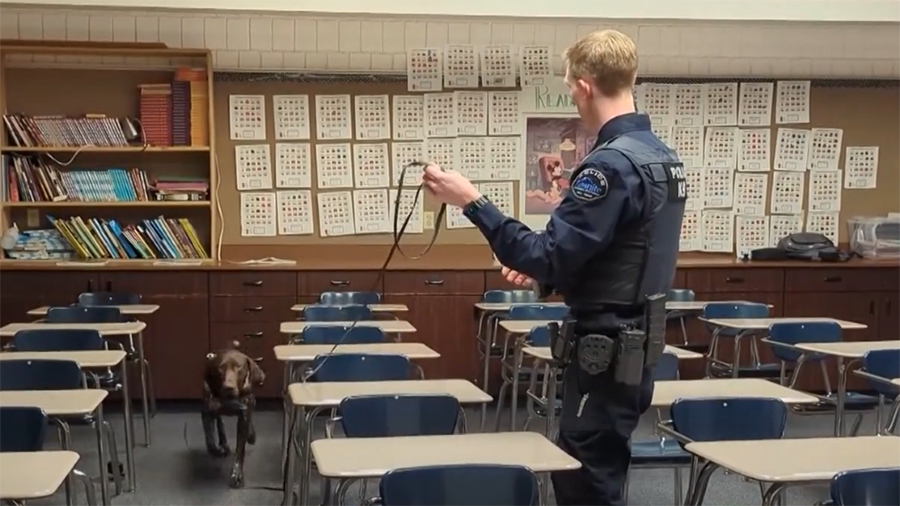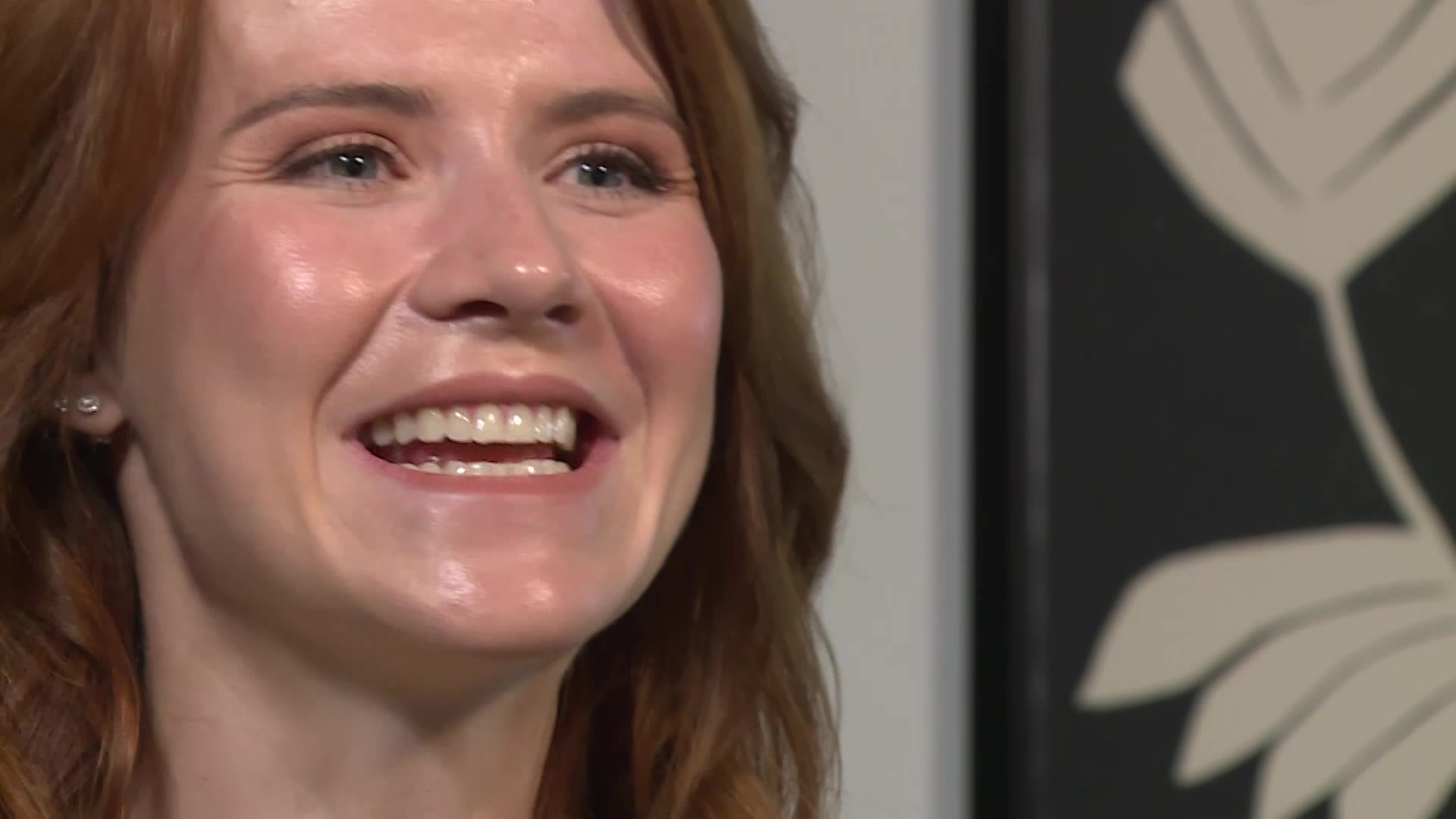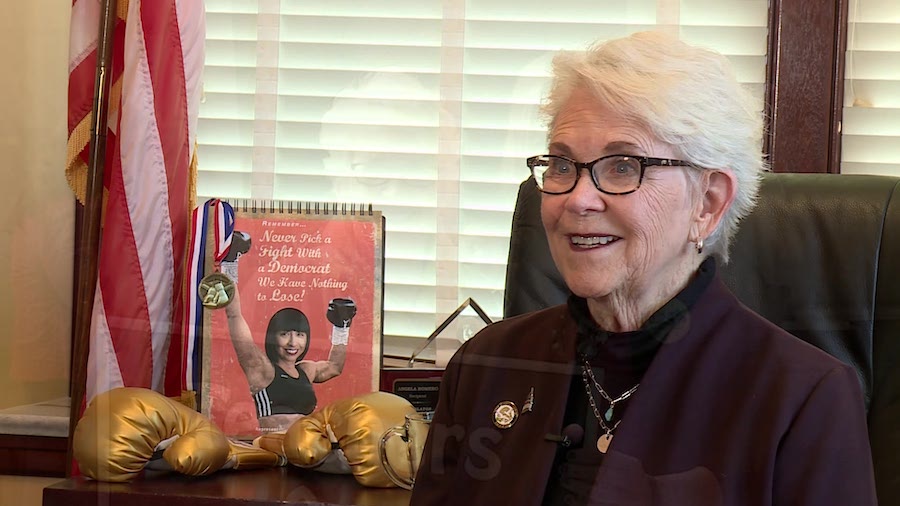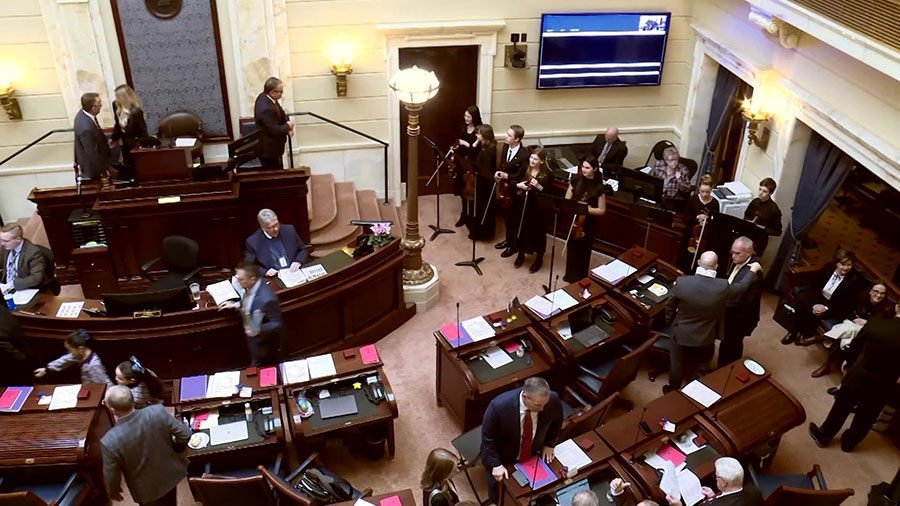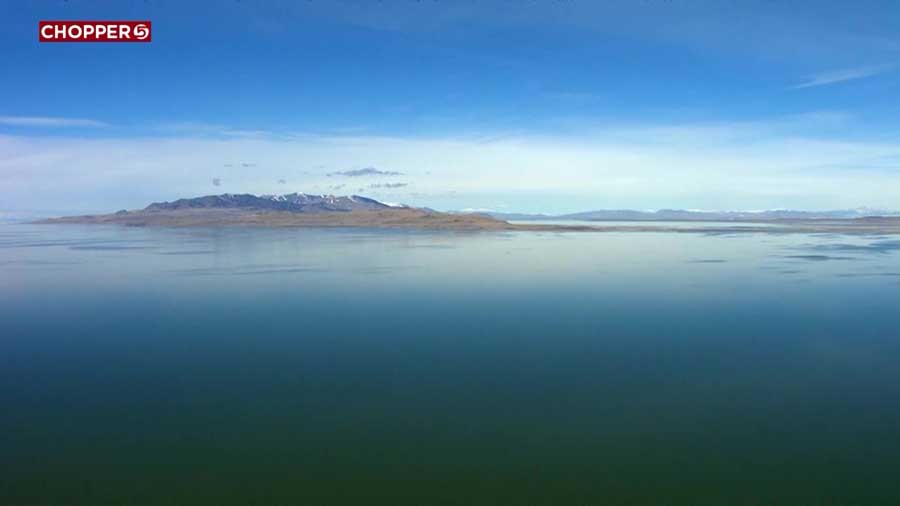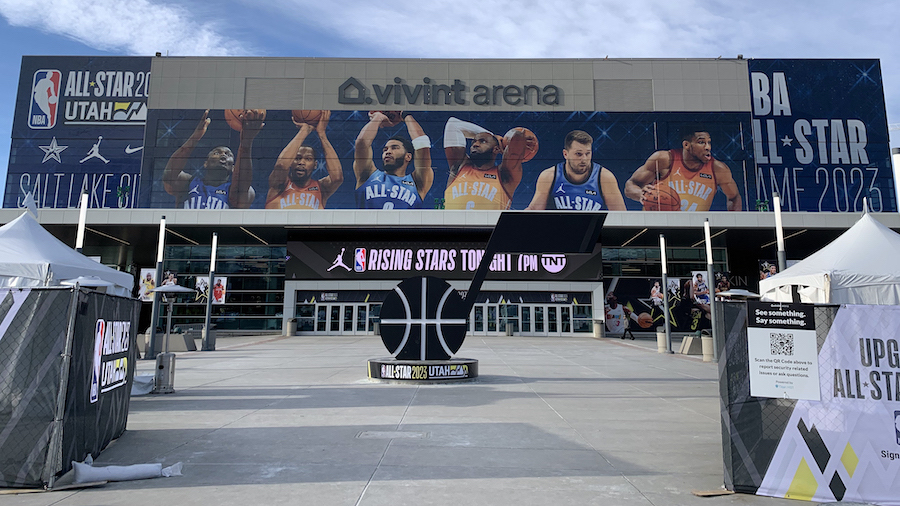KSL+: Republicans Begin Climate Work
Jul 8, 2021, 6:01 PM
Scientists say our climate is changing, and that we play at least some role in it. And now an unlikely group is getting behind the climate cause Republicans and the US House of Representatives. Last month, Representative John Curtis launched the conservative climate caucus
The group includes more than 60 Republicans, including all of Utah’s representatives. For some, it doesn’t take a climate scientist to know that many Republican politicians, at least publicly are some of the loudest deniers of the need to address climate change. But Representative Curtis wants to change that.
I sat down with him virtually to discuss the caucus.
Interviews have been lightly edited for clarity and readability.
Matt Rascon: Well, it’s been a few weeks since you launched this this caucus. So I wanted to kind of get a sense of what the reaction has been like in DC, and here in Utah to this conservative climate caucus?
Rep. John Curtis: Well, I tell you that the reaction has been very heartwarming to me here in DC, of course, a third of the entire Republican members of Congress have signed up to be part of the caucus. I don’t know if any caucus has ever attracted that many people as quickly as we have. It’s very rewarding. And I’m also very pleased that a number of my Democratic colleagues have sought me out and just really been pleased to see what we’re doing. Many of them have given us the thumbs up they like it, they’re pleased that we’re joining them. They’ve not made a political and that’s just really exciting. And I asked my team like, well, what are the phone calls, like coming in from Utah? And they’re overwhelmingly positive as well, especially once people really understand what it is that we’re doing.
Matt Rascon: Okay. Can you bring us back to where this started? Kind of what need you saw what the gap was, that you were hoping to tune when it comes to tackling climate change?
Rep. John Curtis: Yeah, I think that my personal opinion, is it’s been a mistake for Republicans and conservatives to not engage in this. And as a result, we’re branded as not caring about the earth, we’re branded as not having our ideas, we’re branded as denying science. And I don’t think any of those things are true, but I can see how we get that perception, because a lot of my colleagues will run from this. So I felt like it was time to turn that around. And the conservatives had a lot of really good ideas that were very positively impactful on the environment. And we weren’t advancing those because we weren’t talking about it, it was time for us to step up and, and ask her seat at the table and be part of the dialogue.
Matt Rascon: There have been bipartisan caucuses, why make this specifically for conservatives?
Rep. John Curtis: We, of course, want to do bipartisan work. And I think if you go back to the mission of the caucus, which is really to educate republicans on conservative principles that are good for the environment, and so it’s just natural that it’s for Republicans, because we’re exploring conservative ideas to lower greenhouse gas emissions and do other things that are important for our environment. Yeah.
Matt Rascon: And what does separate in your mind, the republican or conservative approach to climate change, as opposed to you know, the green new deal and what a lot of democrats are talking about?
Rep. John Curtis: In some respects, as I understand the Green New Deal, it represents a concept to a lot of people and it’s very easy to say. And I don’t think as a conservative, we’ve got that same nifty way to package our thoughts and things that we would put forward. And maybe that’s something that we’ll do as we move forward. But let me just share a couple of ideas to give you a feel for some of the things that we would be advocating for, as conservatives. Clearly way out on the list is us innovation, as in things like carbon sequestration and direct air capture. Let me tell you why that’s so important. Right now, the US admits about 14% of the world greenhouse gas emissions. China, Russia, and India has massive amounts of carbon that they’re putting out. And so unless we can develop technology that actually pulls some of that out of the air, I think we’re fooling ourselves, we can actually reduce the worldwide carbon. It’s one of the reasons that these this innovation in director capture sequesteration is so important.
Another one is nuclear. By the time President Biden wants to cut our emissions in half, we’ll also be cutting our nuclear in half because we’re closing nuclear plants. And that is something that I think we’ve got to take a hard look at. And I’m fine with the fact that people have problems with nuclear as it is today. I think we can be talking about next generation nuclear. But that should be a solution that conservatives put on the table. And I think what is probably most surprising to people, is this concept that fossil fuels can be very important in reducing worldwide carbon emissions. We know that here in the United States, we’ve reduced worldwide carbon emissions, and dramatically. We’ve reduced more greenhouse gas emissions in the last decade than the next 10 countries combined. The next large carbon reducing countries combined. How have we done it? We’ve done it with a fossil fuel natural gas. So we ought to be talking about natural gas in China and India, you know, India, well, the earth has a billion people without power, they’re burning wood. Well, if we could actually replace that coal with natural gas, we would make substantial reductions in worldwide greenhouse gas emissions. So that’s just a taste of some of the ideas that we want to advocate and put forward. And there’s a lot of ideas. And it’s important that we get busy and start sharing those. So what we’re talking about our ideas that change the worldwide carbon picture, that impact the world and actually make a substantial difference. And what’s really exciting about these ideas is they don’t kill the US economy. In fact, they spur the US economy, we get to export our technology overseas and our innovation and our ideas, and at the same time, make substantial reductions in worldwide carbon.
Matt Rascon: What are some of the challenges that you’ve seen? Or that maybe you foresee, within your own party with creating this caucus?
Rep. John Curtis: Well, I think not everybody, not every republican is ready to talk about climate. And I’m okay with that. I would encourage them to come see what we’re about. And I think they’ll find that it’s a safe home for conservatives. So that’s an issue is being misunderstood by the own party. I think there are some that view climate and they see all the agendas that are wrapped up in it, the green new deal and social engineering, and they don’t want to have anything to do with it. And I understand that, but at the same time, it’s that attitude. That’s what’s kind of allowed us to be branded as not caring about the environment. And I just don’t think that’s true.
Matt Rascon: On the other side, you may have, you know, Democrats who are looking at this and saying, well, too little too late. How do you respond to critics?
Rep. John Curtis: Well, I think there’s several things I’d say. And we’ve done a terrible job of talking about this as Republicans. But if you look back in history, we’ve actually very strong record of protecting the environment. And for heaven’s sake, the EPA, which we most of us hate now, was created by Richard Nixon. Last fall, we passed a very bipartisan bill that put tens of billions of dollars into R&D for green products in reduced hydrofluoric caverns by 85%. And so I can show them and point to a long list of accomplishments that we just haven’t bragged about, we’ve been silent on and that’s, that’s part of the problem.
And the second thing I’d say is, well, like what have you done? So it’s been so good, right? Like you’ve had all these ideas, you haven’t been able to implement them because they’re extremist. And so like, you know, I’d be happy to match your idea for idea and what we’ve accomplished and what you’ve accomplished. And then most important, like, are you really serious about changing the picture? And if you are, you should embrace us. And it shouldn’t matter to you. Other than that, we’re ready to talk about
Matt Rascon: What do you see as the root of that division and the problem here and how parties can get past that and look at what the real issue is?
Rep. John Curtis: So I like to use this example. And that is if we talk about, for instance, immigration, and I bring up the wall, and I say to a group of Democrats, unless you admit that the wall helps with immigration, you don’t get a seat at the table. Well, the wall is packed with emotion and all sorts of agendas and things like that, that cause them to like tighten their chests and, and put up their Dukes. Right. And so you’re really not having a thoughtful conversation about immigration. And climate has much the same problem for Republicans, just the word itself, has all of this agenda packed into it. The green new deal is extreme ideas. And so a lot a lot of Republicans don’t hear you, right? You want to be a good steward of the earth, what they hear is these extremist ideas when the word climate comes up. And I think part of the mission that I want to accomplish is getting people from both sides to kind of dial down the rhetoric that makes us divisive, and really focus on this concept. Who can’t agree with the fact that less pollution is better than more pollution, right? I mean, less trash is better than more trash, right? Like, there’s some really core common things here that we can agree on. And sometimes I think it’s important to like, take these litmus test and these agendas, park them outside for a minute, and let’s just talk about something that it’s so obvious to all of us. Listen, I don’t know a Utahn that doesn’t want to be a good steward of this earth. I just don’t I haven’t met one who doesn’t want to leave it better than they found it. And when we connect on that level, there’s a lot we have to talk about.
Matt Rascon: How big of a task is this going to be? And what does the timeline look like for changing the perception of this issue?
Rep. John Curtis: So I think the perception is changing quickly, just the fact that 64 of my colleagues jumped in and signed up for this. And third of the conference signed up for this tells you that on the Republican side, that perception is changing quickly. And I think people are paying attention now. The burden is on us to be serious, right and put forward serious ideas and advanced serious ideas. And I think in the upcoming days and weeks and months, as we do that, we’ll be able to convince people that we’re actually very serious about this.
Matt Rascon: What do you hope is the long-term outcome of this caucus?
Rep. John Curtis: I think this concept that conservatives do care deeply about this environment, and that we have ideas and suggestions and solutions, and we’re ready to meet people at the table and let the best ideas surface to the top. And I’m confident that as we do that, we’ll find that this can be a huge winner for the US economy, that it can create jobs, it doesn’t have to kill the economy, and that we can be a world leader in this. Now, at the same time, one of the things that’s not being discussed right now is the science that says the earth is going to warm no matter what. So even if we stop all greenhouse gas emissions tomorrow, 100% worldwide, we’re on this trajectory of warming. And we’re going to get drought, and we’re going to have sea levels rise, and we’re going to have tough snow years. So we need to be talking about adapting to this changing world that we’re in and mitigating some of these things that are coming at us. And I think that’s part of the debate that’s been missing that we need to bring to the table is absolutely let’s move as quickly as we can not saying it’s not urgent, we don’t need to move quickly. But even with that speed, we’ve got serious problems with climate, those need to be addressed. Now,
Matt Rascon: I know we touched on Utah, but maybe just to emphasize kind of the where you see Utah playing a role in this and because of course we’re dealing with some of these issues like you know, clean air is a is a big hot topic here.
Rep. John Curtis: So I’m really proud I love it when Utah leads out on an issue. We’ve led out on clean air in many ways. The immigration compact of about 10 or so years ago, I think Utah has frequently been a leader and I’m kind of really excited that that Utah’s leading on this and I it makes me proud to be representing Utah and be a leader and be out in front on this.
Matt Rascon: Like Representative Curtis said, there are things we can agree on, like wanting to be good stewards of the earth. But sometimes the way we talk about the climate can get in the way of progress.
Alex Porpora: Environmental Education is crucially important because we live in the environment.
Matt Rascon: We’re here at Memory Grove Park in Salt Lake, because we met up with Alex Porpora, she is the executive director for the Utah Society for Environmental Education.
Alex Porpora: It has become really partisan, but at the end of the day, it doesn’t matter what party you belong to. The environment affects you. And your actions affect the environment
Matt Rascon: We just spoke with Representative Curtis about the caucus he created within the Republican Party for climate change. So what are some ways that we can communicate this message to people who maybe before weren’t really receptive to it?
Alex Porpora: You know, I think that’s a really great question. And, you know, we’re really hopeful to see, both Republicans and Democrats taking on the issue of climate change. When we talk about the environment, we can’t not talk about climate, everything is connected. And climate change is one of these big, wicked problems, that’s going to take everybody to be able to solve it. So similar to environmental ed, and environmental literacy, being climate literate, also means that you know, and understand how the climate works and functions, how you’re a part of it, how it impacts you, how you can get really great and solid information to help you make the best decisions possible. So when we have a broad based coalition who’s interested in tackling this problem, that’s really great news. And when we think about communicating these issues, there’s a lot of really interesting things at play, because number one, it’s a huge issue. And the climate can seem really abstract. I often, like give the example when I was a kid in elementary school, we talked a lot about the rain forests and coral reefs. And those are really far away from us. But especially here in Utah, we’re surrounded by incredible nature. And that’s why people live here and climate change will impact how we interface and act with our environment. So when we talk about, you know, getting people on board and thinking about these issues, it’s this information piece, but it’s also coming to people where their values and concerns are and not vilifying anybody for actions they may be taking or beliefs that they may hold, and really coming together from a place of empathy, understanding, respect, and figuring out how we can work together to find common ground on things we agree on, and move forward from there to find solutions.
Matt Rascon: So what if someone comes up to you and says, what are we talking about when we say climate change?
Alex Porpora: Yeah, absolutely. So I want to give the caveat that I am not a climate expert. I’m an educator. So my background is in environmental education. And I’ve been an educator for over a decade. So when somebody would come to me to say, you know, I just really don’t understand what this is about, that’s actually a really great place to start from. Because you can say, Well, here’s what I know and understand. Here are some reputable sources that you can go to, whether that’s information from federal state, or local agencies, colleges or universities, and then really caught trying to connect with that person, right? If somebody says, you know, oh, I really love the Great Salt Lake, I know, the Great Salt Lake has a reputation. But let’s say somebody absolutely loves that. Like you can say, you know, we’ve seen over the years how the Great Salt Lake’s level has really changed. And this year is one of the lowest levels in decades, right? That’s something that impacts our community, and it can impact you. So when we’re having a conversation, it’s really not a matter of trying to come at somebody with a ton of facts and change their mind and make them feel bad. But coming from a place of understanding. What’s something that you like to do, or part of your daily life that you may see being impacted or changed. And then what’s some of the information that you can share? And what are some of those shared values that you can tap into to really encourage somebody to make some changes in their life to hopefully combat climate change?
Matt Rascon: It seems really simple when you put it that way. Right?
Alex Porpora: Yeah. on its face, it seems really simple. But there are greater minds than I who are tackling this issue of climate change, conversations and communications and it’s a really dense, complex issue. Something I read recently, was that when people were presented with information about let’s say, a study showing people about how sea level rise would affect them in Florida, they essentially double down on their previous beliefs, it didn’t change their behavior. The way we communicate in metaphor also has an impact on whether or not people understand or decide to change their behavior. So I presented a simple example. And it’s back. It’s complex, because humans are complex. And there’s no, I think, one solution to how we should all communicate about it.
Matt Rascon: Right. What about this topic makes it so divisive?
Alex Porpora: I think it’s such a divisive issue for a number of reasons. Number one, science has become really politicized. You know, we often hear things like believe science and trust science. And over the course of this past year, those messages especially have become pretty politicized. Right. And it’s also, you know, when we think about climate change, again, it’s this big, broad based abstract, it can feel really abstract idea. And at the end of the day, it’s also you know, something that requires people to potentially change. And I think that can be really hard to come to terms with. So you’re dealing with all of these kind of problems within a problem. And it’s also something that, you know, we don’t necessarily think is affecting us day to day, it’s something further down the line that we can think about a little bit later, a problem we can defer. So I think all of those things add up to kind of these difficulties that we might have in communicating climate change issues. And you know, how we change and sway minds, climate education, and climate literacy is something that we’re involved in as an organization and with our relationship with the North American Association for Environmental Education. And a lot of times it’s education starts in K through 12. Right? So how do we give kids the skills to know and understand science and also have the skills to make good decisions about the environment and their communities. One of the things that we’re working on with a coalition of organizations is moving forward with the introduction of a climate literacy education bill, hopefully having that introduced. And that, of course, would be on kind of the federal level. So ensuring that we have quality climate literacy education in K through 12, post secondary and community education, as well as one way that we can begin to bridge some of that divide. And really just kind of, you know, again, trying to move away from certain topics being defensive, right, and I think a lot of that might come from Well, we’re going to teach about climate change or climate literacy. And we’re going to tell you that you have to change absolutely everything that you were doing. But really, what we need to start with is an understanding of how the environment works and functions and how the climate works and functions, and how we are part of that too. I think starting from that base, rather than villainizing somebody from their beliefs can hopefully go a long way towards making some of these changes, like environmental education and climate literacy education are vitally important right to make sure that Utah is a beautiful place for us to continue to live in and recreate for generations to come, that Utah continues to have a strong economy for generations to come. And that we’re continuing to have the same thriving communities that are warm, welcoming places to live for years to come, and the way that we interact with the environment has a big part of that.

